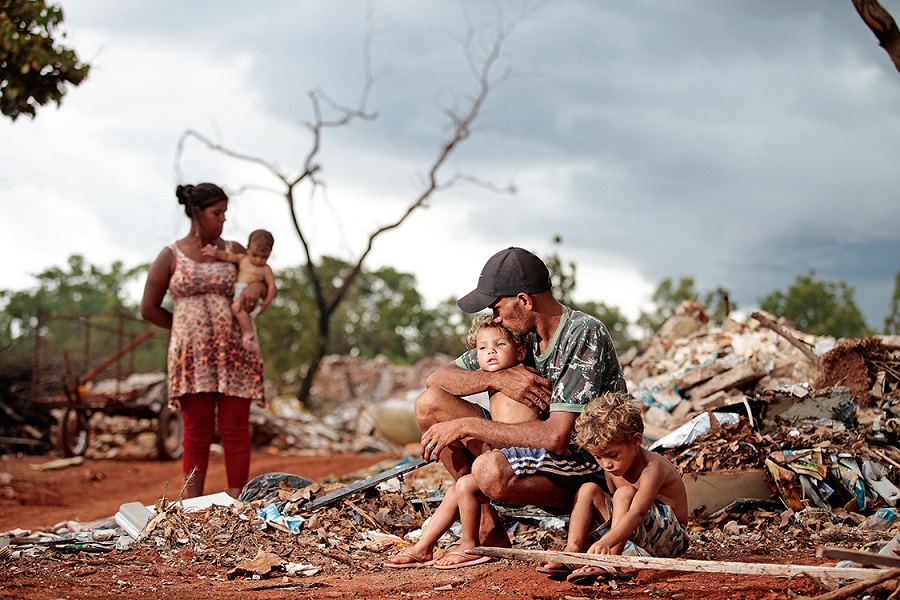RIO DE JANEIRO, BRAZIL – Vale intends to remove 500,000 people living in the area covered by its operations in Brazil and worldwide from extreme poverty by 2030.
Two other goals disclosed by the company are to help the 13 indigenous communities neighboring Vale’s operations have better access to their own rights as provided for in the United Nations Declaration on the Rights of Indigenous Peoples; and to be among the three best-positioned companies in the sector in terms of social requirements in external evaluations – such as the Dow Jones and MSCI indexes, for instance.

“We want to be partners and contribute to the autonomy of the communities in which we operate. We want them to cease to be dependent on mining, which is a transitory operation,” said Vale CEO Eduardo Bartolomeo, adding that Vale intends to invest some US$200 million by 2030 to provide the initial drive for the poverty reduction project.
Bartolomeo explained that Vale has mapped some 1.9 million people in extreme poverty around its operations in Brazil, i.e. living on less than US$1.90 per capita per day. Brazil will be Vale’s initial focus in 2022, expanding this social ambition to other countries in 2023. The company has operations in other nations considered poor, such as Mozambique.
“It is not an initiative to create a Bolsa Vale (Vale Grant). We won’t do that because it doesn’t solve the problem. What we are going to do is coordinate civil society, government and companies in partnerships,” says Vale’s CEO, citing the improvement of formal education, the promotion of urban and rural entrepreneurship and better health care facilities as examples of initiatives that can help reduce extreme poverty.
Data recently released by the IBGE (Brazilian Institute of Geography and Statistics) show that Brazil has 16.2 million extremely poor people, representing 8.5% of the population, considering the World Bank cutoff line of US$1.90 per day. “We could have used another target indicator, such as HDI, but we chose poverty because after the pandemic it was clear that the situation worsened even further,” he said.
On the support to the indigenous communities, the executive recalls that the mining company has a relationship with indigenous people outside Brazil too. In Voisey’s Bay, Canada, 50% of the workforce is indigenous. Sustainability director Maria Luiza Pinto e Paiva explains that Vale’s aim is to talk to the peoples and understand what each one needs. “We want to be part of the indigenous peoples’ autonomy,” the sustainability director explains.
Bartolomeo took over as head of the mining company in April 2019, a few months after the Brumadinho (MG) dam disaster. Since then, he has led the mining company to progress on an environmental and governance agenda – two of the three topics of the ESG (environmental, social, and governance) agenda. He says the company was previously investing a significant amount in social issues, but had yet to set a goal.
“We spend and invest a significant amount on social issues, but we still needed to give it the right profile, to define it as a social ambition. We brought this perspective to the table. The biggest lesson from Brumadinho was to listen and engage with people. We couldn’t forget what society expects from us,” added Bartolomeo, who on Monday announced new diversity goals for the company.
Vale brought forward its goal of reaching 26% female representation in the workforce by 5 years, to 2025. Currently, the share of women at Vale stands at 18.7%, compared to 13.5% in 2019, when the company set its goal for women within a global diversity strategy, the executive said.
In addition, Vale announced that it aims to reach 40% black or brown employees in leadership roles in Brazil by 2026, up from 29%, a number recorded after conducting a self-declaratory census with employees in Brazil.
In the last edition of its Trainee Program, Vale selected 95 black or brown professionals. This means that, of the 144 trainees hired by the company, 66% declared themselves black or brown at the time of application.

